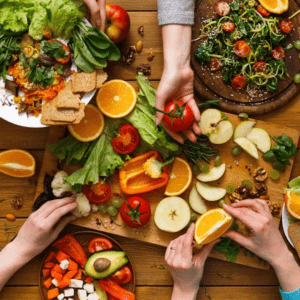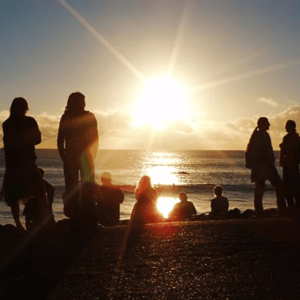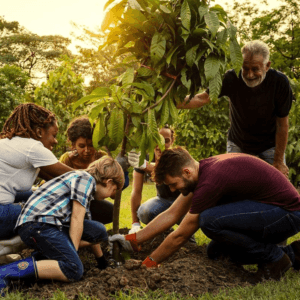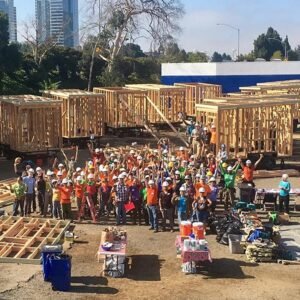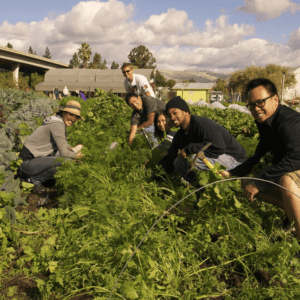Think Global
ACT LOCAL
contributing to eco-social renewal

From the beginning of association, those aligning with evolved social, economic and ecological principles and practices, are urged to reason that sustained global peace made possible through the implementation of shared ‘common wealth’ provisioning, (according to ability), and distributed (according to need), will not be birthed nor sustained via mass rallies, protests or political agitation. On the contrary, a world-wide culture of peace can only be installed and nourished, by one hand extending to another and another, uniting in friendship until every citizen of the earth is linked to every brother and sister of another mother.
This is the practical means by which the winds of change will be summoned to blow through city suburbs, towns and rural areas, wiping away the old and ushering in the critical change needed to bring nations from separation to unity – sharing all with all.
For these reasons, the initial formation of local, regionally and globally-networked shared ‘common wealth’ communal living and livelihood unions, is brought to fruition by communitarians dedicated to contributing to socioecological change, by taking the time and making the effort to interact and collaborate on social media platforms with those who have already adopted a cruelty-free diet and lifestyle that respects the right-to-life of all creatures great and small as well as contributes to responsible stewardship of the Earth’s resources.
On the ground LOCAL CHANGEMAKER activism
From these initial contacts, communitarians take the next steps to facilitating ‘face-to-face’ interaction by hosting ‘vegan, animal-right-to-life and environmental protection, meetups. Taking the role of host for a meet-up, can be as easy as posting the time, date & place of the event on university or college campus noticeboards as well as social media sites that include the many and various vegan, animal right-to-life and environmental activist, platforms.
Organising the place to meet can be as simple as erecting a sign next to a picnic table in a park, or else, booking a table at a vegan café. For a big day out, a tour of a permaculture farm maybe a little more involved, yet well-worth the extra effort. To establish more regular contact, a group-buy meetup can be organised to be held once a week or once a fortnight, at a farmers’ market.
While the first event, may need to be organised by a single activist, future events will likely be planned and hosted, collaboratively, by those who attend the initial meetup.
Meetups can be either formal or informal. Those hosting a local meetup for the very first time, on their own, may opt to arrange an informal meetup with no set agenda that allows for whatever happens to happen. As casual as it might be, it is still advisable to plan at least one or more activities to aid people to meet and greet each other, on a meaningful level.
A more formal meetup event, might take the form of a catered shared meal, followed by a presentation of living food preparation and recipes, along with group activities that involve group discussions that lead into hands-on practical skill sharing.
Whether the meetups are offered as simple or elaborate events, it is crucial that no one who attends is left to languish on the sidelines, alone, embarrassed, knowing no one, not being spoken to, or invited to sit, eat or participate in conversations. If this happens to just one person who accepts an invitation and bothers to get dressed, prepare food to share and pays bus fare to travel to the meeting place, it will be tragic. The group can be certain, they will never see that person again. The result – a conscientious objector to the exploitation of people, earth and animals will be lost who might otherwise have contributed much to the cause of establishing world peace, saving billions of animals lives along with rivers, rocks, mountains and plains to ensure the life, liberty and happiness of current and future generations.
From Little THINGS
BIG THINGS Grow
Where can these seemingly trivial contacts lead? What can be grown from taking the time and making the effort to create friendship circles that connect those of like-mind and parallel ethics and goals? Dare to dream. From small things, big things grow. When we act from the place of our convictions, planting seeds, one day we are sure to enjoy the shade of big trees with many branches, bearing abundant good fruit.
Where to begin? Begin with the end in mind. Day dot, sit down and plan a year’s worth of meetups. Little will be achieved if no plan is in place to ensure what is begun has continuance. The central objectives of the meetups are to establish a central meeting point for those following the cruelty-free diet and lifestyle to congregate with others of like mind and principles to go that step further – to collaborate, to share, to create enduring relationships that provide support, generate stimulating experiences and help us develop capacity to positivity impact the world through love that makes ‘deep abiding union’ possible.
Now is the time to Think Big. No grand vision is off limits. Ask yourself, or those within an already established group of activists; what do we want to achieve by offering a reliable place for other activists to meet?
Once the objectives are decided, plan to offer no less than 1 meetup event every month for the entire year that focuses on presenting a different topic that highlights, educates and activates, 3 key Changemaker Criteria:
- Transitioning to the living foods diet and lifestyle
- Progressing the cause of right-to-life and liberty of all creatures great and small
- Providing education and practical ways to contribute to the conservation, preservation and responsible stewardship of land and sea
If the events are aimless, little, if anything will be achieved. For the meetups to produce productive results, the events must be planned in such a way that those showing interest in the communitarian lifestyle, walk away inspired to collaborate, eager to contribute to practical love-in-action.
Meetup facilitators will need to ensure each event provides opportunities for those in attendance to get to know one another, to share, to collaborate and join forces beyond the meet-ups.
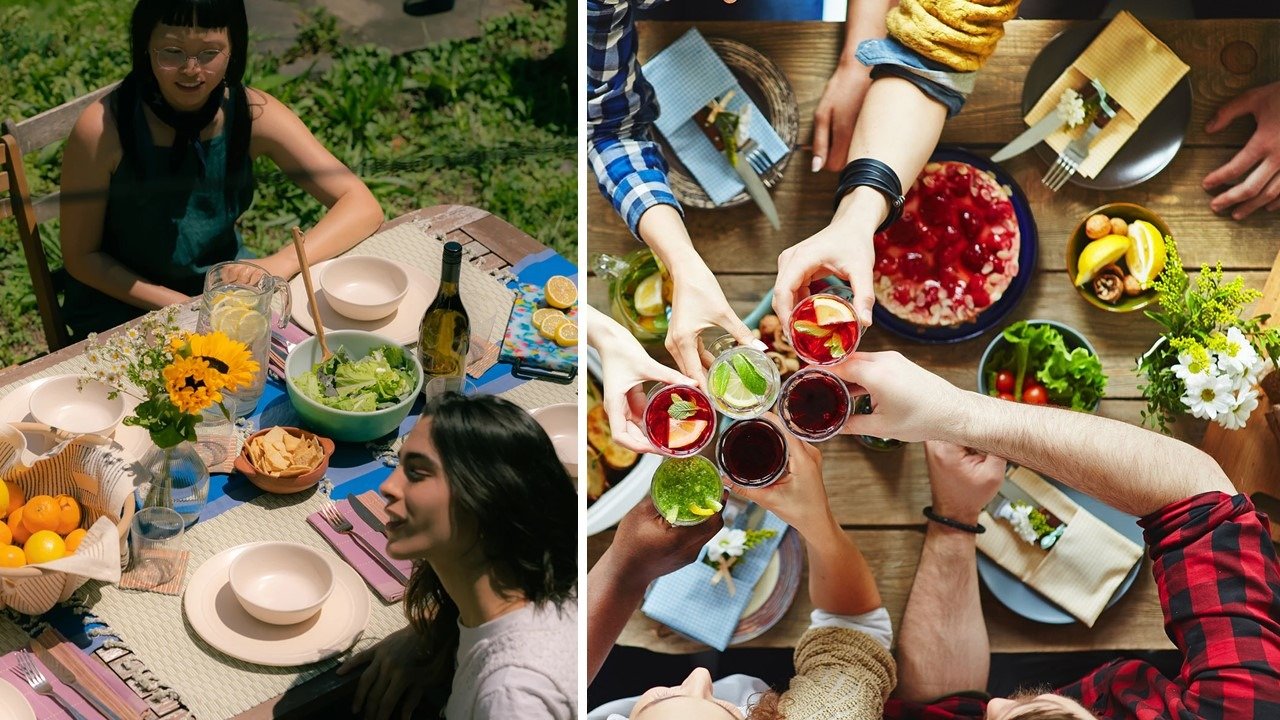
Facilitating 'Invitation Only' Gatherings
For security reasons, communitarian gatherings, without exception, are ‘invitation only’ events. While it is unfortunate that the meetups, communal meals and Sunday Celebrations as well as group discussions cannot be openly offered to the public, it is nonetheless imperative that hosts and those involved in planning and staging the gatherings, ensure the safety of all those attending.
Installing protective vetting processes ensures the gatherings are less likely to be infiltrated by those with malicious intent to deliberately disrupt, obstruct, or even verbally or physically attack the group. Those opposed to animal right-to-life & liberty as well as environmental reforms, are many – the majority in fact; while those actively seeking justice and protection of people, animals and the planet, are sorrowfully few.
For less extreme reasons, yet nonetheless essential facilitation of social harmony, examining the motives of those seeking association, establishes boundaries that prevent those who are negative, combative, or less aware of the need for collective action to bring to an end, animal and environmental exploitation, from hijacking and even shutting down constructive discussion or group development presentations.
Regardless of low numbers of RSVPs confirming attendance at a particular gathering, inviting those who are clearly not on-board with the group’s social, economic and ecological objectives; yet nonetheless are eager to avail themselves of a free meal or the opportunity to ‘get up close and personal’ with a ‘pretty girl or handsome boy’; meetup facilitators must never become lax to the point of indiscriminately ‘letting their guard down’.
While it might be tempting for hosts to throw caution to the wind and just invite ‘freeloaders’… ‘just because’… you never know, association might just ‘turn them’; discerning wise and unwise association as well as judicious stewardship of the group’s time, energy and more often than not, meagre resources, must be, at all times, responsibly exercised.
Designing the format and facilitation of group forums and development workshops, requires employment of heightened complex protection measures that ensure discussions are not unduly diluted by negative and irrelevant comments allowed to run rampant, and unchecked, drowning out constructive input.
It is essential that forming as well as well-established unions, install security measures that ensure associating with those of like ethical standards and social development, is both mentally and physically safe, for all involved.
Protecting associates’ privacy is also crucial and therefore the initial ‘housekeeping’ component of forums and group development workshops, begins by relaying the stipulation that all that is said and done within the group, remains confidential. Also, at the conclusion of gatherings, attendees are again formally reminded of their ‘duty of care’ to ‘zip lips’ to play their part in building trust and thereby strong, supportive and enduring relationships.
Well-established communal unions have also discovered that forming smaller groups of (three or four) while remaining under the umbrella of the larger group, helps strangers become solid friends and allies, faster and firmer. Creating ‘satellite’ unions attached to larger unions helps most associates experience safety through connection; which in turn, increases the security of the overall group.
To facilitate further protection measures, forming-communal unions are strongly advised to follow the lead of established-unions by also installing buddy systems, along with assigning two or more mentors to provide on-going support for each associate.
In addition, concisely articulated dos and don’ts set down in written form, provide guidelines that help associates understand acceptable and unacceptable behavior as well as expected contribution to the group. As a general rule, this basic social etiquette, includes using respectful tone and language, remaining silent when others are speaking, greeting everyone, saying please, thank you and excuse me, holding the door open for those behind you, pitching in to set out workshop spaces as well as clear tables after meals.
Hosting GATHERINGS
The ideal duration of the initial meetup is usually from an hour to 90 minutes. It is of great benefit to leave the attendees wanting more rather than wishing they had not shown up at all if the meeting drags on for hours. If some want to hang around after the event to continue talking, that is up to them. Make it clear that everyone else is free to go. However, it is a good idea for the event hosts not to linger for hours after gatherings, relaying information and delving into issues with some, and not others, who would also benefit from being part of discussions at future events.
The conclusion of the meetups is also the opportune time to let everyone know the date, time and place of the ‘Next Gathering,’ which should be at least tentatively planned and the structure outlined on printed fliers that can be handed out to those departing.
What happens if no one shows up? The hosts simply move onto the next event, paying careful attention to send out personal invitations and also follow up to gain commitments of who will and won’t be attending, well in advance.
Sending Out INVITES
Six weeks is usually enough time to ‘get the word out’ and also to send out personal invitations asking people to RSVP. A greater interval between announcing an event and it taking place, can result in people not committing to attend due to not knowing their work or study schedules so far in advance.
Fostering FRIENDSHIPS
After the initial event, the host or hosts should endeavor to contact each attendee within a week to touch base – find out how good or bad or neutral the meetup was for them. It is a good idea to start by asking, what was your experience, what could have been done better and are you willing to help host other meetups as well as invite others you know to attend future events.
Beyond making contact to gain this initial feedback, someone from the hosting group, should arrange to meet each of the attendees agreeing to attend future events, face-to-face, at least once, before the next scheduled event. If people cannot meet face-to-face because of distance, work or study schedules, then they should still receive a text, or better still, a phone call once a week; together with a text a couple of times throughout the weeks prior to the next event. These follow up calls and texts, need not be long-drawn-out conversations; just a ‘check-in’ to show that the group is holding their hand out in friendship while also willing to offer any support that might be needed to attend the next event.
‘Touching base’ after the meetup is essential, otherwise all the ground that has been gained in making contact with fellow activists will be lost. While it might be hard to pick up the phone and dial the number of someone who is still a stranger, not knowing how the call will be received, it is nonetheless a crucial hosting task. If the hosts muster the courage to text or call to let the people who showed up to the first event willing to take a risk, that they made an impression and that the group is thinking about them, and would very much like to share their company at future meetups; it is certain to reap rewards for both the caller and those contacted.
These simple costless gestures, are the water that germinates the seed of deep abiding union. Without taking the time and making the extra effort to follow up with ‘our own’ – those who share our values, goals and challenges; the seed that has been planted, will surely wither and die due to lack of care and attention.
Further down the line, responsibility for making and keeping contact with the regular as well as new attendees, and also inviting new members to gatherings, can be spread across the entire meetup group.
Cultivating FRIENDSHIP CIRCLES as core Changemaker Activism
The key to attracting and keeping people motivated to participate in the meet-up events, is to skill everyone on how to establish enduring friendships through taking the time and making the effort to have regular conversations with everyone involved. Encourage those who respond to invitations to attend the events, not to discount, or exclude anyone; except on the grounds of disruptive, aggressive or antagonistic behaviour.
Appointed meetup hosts and associated planners as well as facilitators, need to lead by example, demonstrating how to ask people about their lives – what they are interested in, where they are from. Building on the contact made in past events at ‘next events’ is critical. For these reasons, a group ritual should be firmly established that asks everyone to introduce someone else and tell their story, until everyone knows something significant about everyone. After which, those who ‘bonded’ with a particular attendee, should make a point of connecting with that same person each time they meet them.
Once the hosts have developed a rapport with an attendee, then someone needs to invite them to do something beyond the meetup events. This catch-up could take the form of inviting them to go for a walk or a run, share a lunch, snack, or study or edit an assignment, or else take a trip to the beach or local market together.
What makes a good friend? What are the qualities in the people we intend to keep in our lives for a long time? The personal attributes that come to mind will likely be kind, patient, honest, trustworthy, loyal, a good listener, generous, well-mannered, reliable, genuinely cares about people, animals and the planet, steps up and offers to help when needed. These are all good qualities to cultivate. Without them, it is very hard to make long-term friends that reciprocate the give and take needed to sustain enduring relationships.
However, we all seem to be attracted to those that have a dash or an extraordinary splash of X-factor. While it is somewhat difficult to define what ‘does it’ for each of us, usually the common denominators of attraction rather than repulsion are healthy doses of enthusiasm, confidence, humour – and last but not least, optimism. When it comes to making friends, anyone born blessed with any one of these X-factor traits, will certainly have an advantage over those who lack natural endowment of these valuable social graces. However, these X-factor social attractors, cannot trump consistent trustworthy, reliability nor a spirit of cooperativeness.
If we are aware that we lack these qualities; through will and effort as well as support from those progressing toward sharing all with all, each and every character trait can be consciously cultivated. Capacity to develop, nurture and sustain friendships with a diverse range of people from different age ranges, language groups and cultural backgrounds, are the core activities of changemaker activism. Any attitude or impasse that sidelines or dispenses with this essential central undertaking will erode and thereby cancel out any gains that may have been hard won by our own as well as everyone else’s contributions of time, talent and resources.





